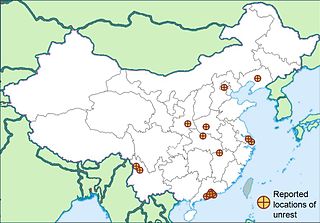
My Lucky Stars is a 1985 Hong Kong action comedy film starring and directed by Sammo Hung. The film was written by Barry Wong, and produced by Leonard Ho. The film co-stars Jackie Chan, Yuen Biao, Sibelle Hu, Richard Ng, Charlie Chin, Eric Tsang, and Stanley Fung. It was released as 5 Lucky Stars in Japan and as Ninja Encounter in the Philippines. My Lucky Stars is the second film in the Lucky Stars series, and a semi-sequel to Winners and Sinners, with many of the same actors returning as the "Five Lucky Stars" troupe, albeit with different character names and slightly different roles.

Sir Reginald Edward Stubbs was a British colonial administrator who served as governor of four British territories during his career, including Hong Kong and Ceylon.

The National Union of Seamen (NUS) was the principal trade union of merchant seafarers in the United Kingdom from the late 1880s to 1990. In 1990, the union amalgamated with the National Union of Railwaymen to form the National Union of Rail, Maritime and Transport Workers (RMT).

The 1951 New Zealand waterfront dispute was the largest and most widespread industrial dispute in New Zealand history. Over the period, up to 20,000 workers went on strike in support of waterfront workers protesting against financial hardships and poor working conditions. Thousands more refused to handle "scab" goods. The dispute was sometimes referred to as the waterfront lockout or waterfront strike. It lasted 151 days, from 13 February to 15 July 1951. During the lockout, the Watersiders' Union was deregistered and its funds and records were seized, and 26 local watersiders' unions were set up in its place.

The 1967 Hong Kong riots were large-scale anti-government riots that occurred in Hong Kong during British colonial rule. Beginning as a minor labour dispute, the demonstrations eventually escalated into protests against the colonial government. The protests were partially inspired by successful anti-colonial demonstrations in Portuguese Macau which had occurred a few months prior.
![<i>The Crazy Companies</i> 1988 [[Cinema of Hong Kong|Hong Kong]] film](https://upload.wikimedia.org/wikipedia/en/b/b7/TheCrazyCompanies.jpg)
The Crazy Companies is a 1988 Hong Kong comedy film directed by Wong Jing, and starring Andy Lau and Natalis Chan. It was followed by a sequel, The Crazy Companies II, which was released in 1989.

In Hong Kong, the Political Appointments System is a scheme introduced by then chief executive Donald Tsang in 2008 to reinforce the government's ministerial team by superseding the Principal Officials Accountability System and inserting two layers of politically appointed officials below the secretaries, who are political appointees. These appointees report only to the secretaries, but not the permanent secretaries, the highest-ranking civil servants. The appointment of undersecretaries and political assistants is an extension of the previous RPAS that was initially confined to principal officials. Prior to the introduction, there were 14 political appointees—3 Secretaries of Departments and 11 Directors of Bureaux.

The Canton–Hong Kong strike was a strike and boycott that took place in British Hong Kong and Guangzhou (Canton), Republic of China, from June 1925 to October 1926. It started out as a response to the May 30 Movement shooting incidents in which Chinese protesters were fired upon by Sikh detachments of the Shanghai Municipal Police in Shanghai.

The 2010 Chinese labour unrest was a series of labour disputes, strike actions, and protests in the south of the People's Republic of China that saw striking workers successfully receive higher pay packages.

The 2013 Hong Kong dock strike was a 40-day labour strike at the Kwai Tsing Container Terminal. It was called by the Union of Hong Kong Dockers (UHKD), an affiliate of the Hong Kong Confederation of Trade Unions (HKCTU) on 28 March 2013, against contracting companies to whom workforce management had been out-sourced by the Hongkong International Terminals Ltd. (HIT), subsidiary of Hutchison Port Holdings Trust (HPHT), which is in turn owned by Hutchison Whampoa Ltd (HWL), flagship company of Li Ka-shing, Hong Kong's richest man. The strike workers demanded better pay and working conditions. The strike ended on 6 May 2013 when the strikers accepted the offer of 9.8% pay rise. It was the longest running industrial action in Hong Kong in years. Public support and media attention on the strike were unprecedented in the city's history. Some observers marked this as the rejuvenation of political engagement.

Lau Chu-pak was a Hong Kong merchant and politician.

The 2015 Hong Kong District Council elections were held on 22 November 2015. Elections were held to all 18 District Councils with returning 431 members from directly elected constituencies after all appointed seats had been abolished.

Lifeline is a 1997 Hong Kong action disaster drama film directed by Johnnie To and starring Sean Lau, Alex Fong and Carman Lee.
Socialism in Hong Kong is a political trend taking root from Marxism and Leninism which was introduced to Hong Kong in the early 1920s. Ever since the Chinese Communist Party adopted economic reforms from 1978, young socialists have largely moved towards the pro-democracy camp under the banner of social democracy while traditional leftists still remain in the pro-Beijing camp.

The pro-Republic of China camp, or the pro-Kuomintang camp (親國民黨派), is a political alignment in Hong Kong. It generally pledges allegiance to the Republic of China (ROC) in Taiwan and the Kuomintang.

The 2018 Kowloon West by-election was held on 25 November 2018 after the incumbent pro-democracy Legislative Councillor Lau Siu-lai of Kowloon West was disqualified from the Legislative Council of Hong Kong (LegCo) after the oath-taking controversy resulted in the disqualifications of the six pro-democracy and localist legislators. It followed the by-election of four other vacated seats on 11 March 2018. Chan Hoi-yan, a nonpartisan backed by the pro-Beijing camp won over veteran democrat Lee Cheuk-yan of the Labour Party, a backup candidate for the pro-democracy camp after Lau's candidacy was disqualified.

The Emergency Regulations Ordinance is a law of Hong Kong that confers on the Chief Executive in Council the power to make regulations on occasions that the Chief Executive believes to be an emergency or public danger. It was first introduced in Colonial Hong Kong in 1922 to combat the seamen's strikes which had immobilised the city's ports, and was invoked on several occasions during the colonial rule.
Anarchism in Hong Kong emerged as part of the Chinese anarchist movement, when many anarchists sought refuge from the Qing Empire in the territory. It grew alongside the Chinese revolutionary movement, before the territory again became a safe haven for anarchists, following the Communist victory in the Chinese Civil War. Since then anarchists have formed a part of the Hong Kong opposition movement, first to British colonial rule and then to the rising authoritarianism of the Government of Hong Kong.
Home Office 213/926 or HO 213/926 is a Home Office file which records the secret deportation from the United Kingdom of thousands of seafarers to China in 1945 and 1946, permanently separating them from their families. It was officially entitled "Compulsory repatriation of undesirable Chinese seamen."







![<i>The Crazy Companies</i> 1988 [[Cinema of Hong Kong|Hong Kong]] film](https://upload.wikimedia.org/wikipedia/en/b/b7/TheCrazyCompanies.jpg)









